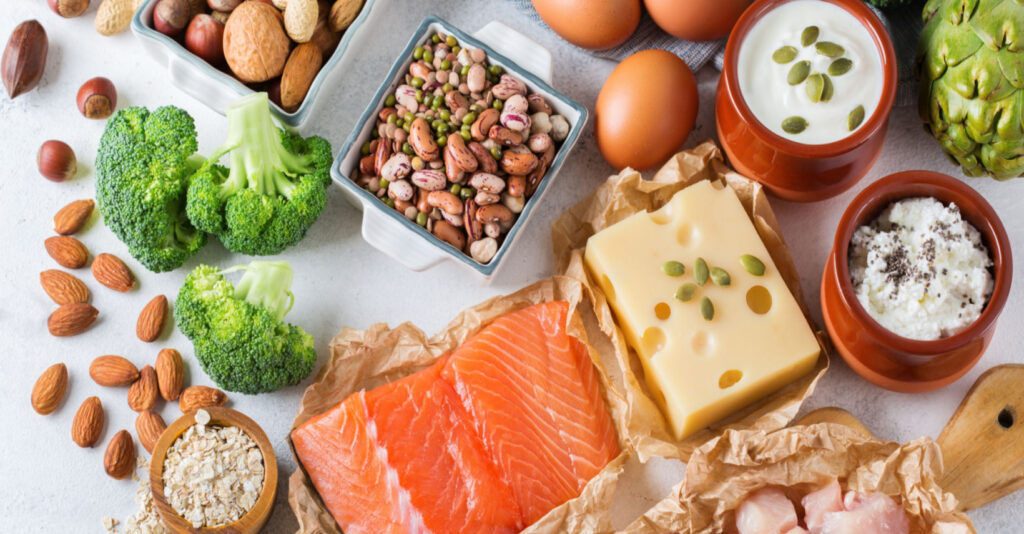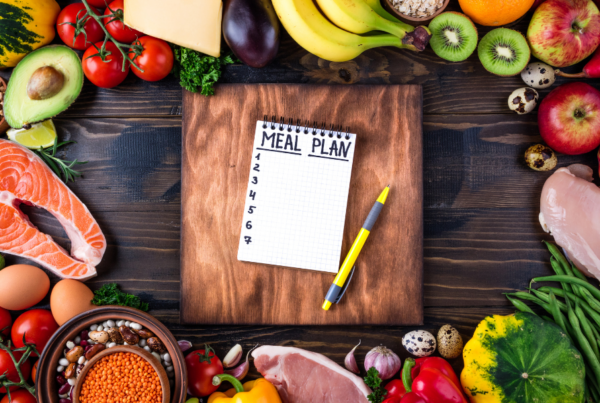Everyone knows that eating healthy is one of the primary keys to a long, happy life. However, when there’s so much mixed messaging about what eating healthy is, how are you supposed to know what you should do to nourish your body? And how can you afford to eat healthy when groceries are so expensive?
Many people think eating healthy costs more, especially when buying fresh fruits, veggies, and vegetarian/vegan options. However, eating healthy can be cheap, and we’ll tell you exactly how.
Misconceptions About Clean Eating
One of the biggest misconceptions about healthy or clean eating is that it has to be costly. Sure, eating healthy can be expensive, especially if you choose prepackaged meals. However, any diet can be expensive for this reason. But the truth is, you have many affordable options that will allow you to eat healthy for cheap. This article will discuss some of the secrets of healthy eating on a limited budget.
Eat Healthy for Cheap
The first key to eating healthy is properly planning your meals. The second is to choose your grocery items wisely. Some essential tips we will be going over in the following section include:
- Planning out the meals you are going to eat
- Making a smart grocery list
- Buying certain things in bulk
- Making use of leftovers
Plan Meals Carefully
One of the most crucial tips for eating healthy while not breaking your budget is carefully planning out your meals. Before going to the grocery store, decide what you want to eat for the next few days or weeks (depending on how often you shop).
Go through your freezer, fridge, and pantry to determine what you already have on hand. Do you already have some healthy ingredients to work with? Then, try to plan some meals around these items.
For example, if you have rice, a can of mandarin oranges, and some sesame oil, you could plan to make mandarin chicken. All you would need for this is a small amount of chicken. Depending on how many people will be eating, you can choose the appropriate amount of chicken. If it’s just for you, don’t bother buying a whole package of meat. Instead, go to the butcher’s counter and request one single chicken breast.
For this tip to work, you must stick to the recipes you have decided on without straying. Say no (or at least limit) ordering takeout or going to dinner with friends.
Stay Faithful to Your List
Like the last tip, staying faithful to your grocery list, both in the store and at home, is another one of the best ways to save money while eating healthy.
When you are in the grocery store, staying focused on what you need to get can be challenging. Supermarkets are designed to be distracting like this, and it’s tempting to purchase things you don’t need. However, it’s essential to stick to your list so you don’t add unnecessary costs at checkout.
You’ve heard it before, but you should never go to the grocery store when you’re hungry. This tip alone can keep you from impulse purchases.
Eat Your Leftovers
This might seem like a simple tip, but many people don’t actually do it. Many of us plan to eat our leftovers, especially when we cook big portions. However, sometimes leftovers just don’t look as appetizing the next day, or we think of something else we would rather have.
Eating up your leftovers can save you a ton of money on groceries. It stretches your food further and lets you get more meals from your ingredients. Sure, you might be craving something else, but once you eat the leftover meal you planned, that craving will disappear, and you’ll be satisfied. And you’ll have more money in your pocket. We don’t always need to get everything we want. Sometimes we can make do with food that is just “meh.”
Buy Generic Brands
Some individuals automatically gravitate toward purchasing name-brand items. Yet most generic brands are similar, if not virtually the same, as big-name brands. Generic brands are also typically much less expensive than name-brand products.
Opt for the cheaper generic version during your grocery trip unless you’re really married to a specific brand. Your overall bill will probably be much less than if you stay brand-loyal.
Avoid Highly-Processed Foods
Highly-processed foods can include anything from soda to crackers to pre-packaged meals. Generally, highly-processed foods are not as healthy for you as basic ingredients. They usually don’t have great nutritional value, are full of sodium and fat, and may even contain questionable preservatives.
Additionally, prepackaged foods are typically pretty pricey. So instead of opting for frozen pasta dinners (or some other premade meal), make a big pot of spaghetti. It’s far cheaper and can last several days. You can even freeze some for later if you get tired of it.
Pay Attention to Sales
Another way to save on food is to pay attention to what’s on sale at the grocery store. First, you can check online stores like Instacart, where deals from different stores are constantly updated. Another way to check is to join your store’s rewards program, which is typically free and allows you to earn points off your purchase. Sometimes, stores will even have an app or website showcasing the current sales.
Finally, most stores still have some form of weekly physical ad, which will contain virtually everything on sale for the upcoming week. This usually arrives in your mailbox and ends up in your recycle bin. Have a look at it from time to time. You will notice that certain things go on sale regularly. When chicken goes on sale, for example, buy an extra package and freeze it.
Stay Loyal to One Grocery Store
Sometimes, beating inflation at the supermarket means staying loyal to one grocery store or chain. Surprisingly, this may help you to save money in the long run. For example, if you are enrolled in your store’s rewards program, you will likely be able to earn points toward cash off your grocery bill or free products.
The more money you spend at that specific store, the more points you will earn, and the more money you can put toward your future purchases. Loyalty programs are worthless if you don’t actually use them!
 Replace Meat With Cheaper Proteins
Replace Meat With Cheaper Proteins
Meat is an excellent source of protein for those who want a healthy, balanced diet, but it is not the only source of protein available. Try replacing meat with beans, eggs, hemp seeds, canned fish, or other protein-rich legumes to get varied protein sources.
Not only are foods like canned beans and fish incredibly good for you, but they are also non-perishable, so they are perfect to have in your pantry for those days when you just don’t know what to eat. Canned vegetables or fish won’t go bad for years, so you will always have something on hand for leaner weeks.
Buy Frozen Produce
Frozen produce, such as fruits and vegetables, are great for getting your vitamins without breaking the bank. One of the most expensive parts of your grocery trip can be buying fresh produce. However, the nutrients you get from frozen fruits and vegetables are almost no different than if you were to eat their fresh counterparts. Frozen fruits and veggies are also great for smoothies when you need a quick, healthy breakfast.
However, there is one caveat: Sometimes, fresh veggies are the cheapest and most nutritious option. For example, Sweet potatoes, onions, bananas, and certain other produce is frequently super cheap. If you enjoy these foods, there’s no reason not to indulge in them when the price is right. A banana literally costs oodles less than a candy bar. And a couple of sweet potatoes is usually under two bucks.
Buy in Bulk
If you have a Costco or Sam’s Club membership, buying things in bulk can sometimes be a cheaper alternative to visiting the grocery store every week or two. If you can plan carefully enough, buying fruits, veggies, snacks, and drinks in bulk can help you save money over the long run. This is especially true if they are items you regularly purchase each week. Just don’t over-buy and have it go to waste.
Closing Thoughts
Eating healthy on a budget might seem challenging, but it is much more intuitive than you might think. Eating whole, natural foods without breaking the bank is entirely possible. Healthy diets require more planning and commitment than you may be used to. However, promise yourself to commit to a more nutritious diet and start your clean eating journey now!



 Replace Meat With Cheaper Proteins
Replace Meat With Cheaper Proteins







